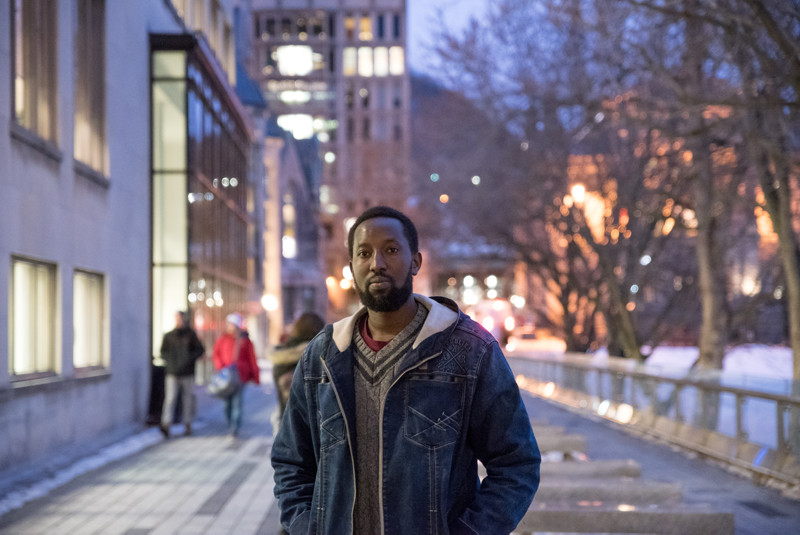As Jean Kagame, U3 Social Work, drove to Toronto with two friends on Nov. 21, Ontario Provincial Police (OPP) pulled him over and charged him with stunt driving at over 170 km/hour. Kagame maintains that he did not exceed 120 km/hour and alleges that he was racially profiled by the member of the OPP who pulled him over.
According to Kagame, the officer stopped him and took his license without introducing himself. Only after calling a truck to tow Kagame’s car did the arresting officer explain that Kagame was being charged with stunt driving and that, in line with Ontario’s Highway Traffic Act, his vehicle was being impounded. Upon asking for clarification, Kagame alleges that the officer swore at him and acted aggressively.
“It was disappointing in so many ways,” Kagame said. “I have been driving for a while, [and] I have never had any interaction with any police officers. They don’t get paid to terrorize us. I only had this positive image of what Canada is branded to be [….] I should feel safe, but it’s exactly the opposite.”
Kagame said that the arresting officer’s partner apologized for his coworker’s behaviour, confiding that he would have handled the arrest differently and offering to drive the group to a train station.
“I don’t know where I would be if it wasn’t for the [other officer],” Kagame said. “He did what I felt was right, and he acted professionally. Me and my friends are really thankful for him.”
In addition to having his rental car impounded for a week, Kagame faces a fine of up to $10,000 and up to six months of jail time if found guilty. McGill’s Black Students’ Network (BSN) and the Social Work Students’ Association (SWSA) have started a GoFundMe campaign to help cover Kagame’s legal and car rental fees, raising over $1,400 since Nov. 30. Further, Kagame’s account of the incident received almost 400 shares on Facebook.
“I want to thank people,” Kagame said. “When such a thing happens, you can feel so alone and so isolated [….] Seeing people’s responses and people sending me messages of support, people telling me their stories […] I think the issue is way bigger than everyone thinks [….] All I can hope is to get justice and to make sure that the officer is held accountable for what he did to me and my friends.”
Following the arrest, Kagame was unable to file a complaint with the OPP.
“I said, ‘could you tell me the full names of the officers, because they didn’t introduce themselves to us,’” Kagame said. “[The officer taking the complaint] said, ‘we introduce ourselves by driving the cars with the lights on top.’”
Disappointed, Kagame is filing a complaint with the Ontario Human Rights Commission and the Office of the Independent Police Review Director.
“I felt so attacked,” Kagame said. “There was some extra motivation behind [the arrest….] I’m going to do anything I can to defend my name. I can only hope that the Human Rights Commission and the Office of the Independent Police Review Director takes a closer look at this and makes sure that [the officer] is held accountable for treating us the way we were treated.”
Fo Niemi, co-founder and executive director of the Centre for Research-Action on Race Relations (CRARR), argues that Canadian police departments need to acknowledge their own diversity problems to tackle profiling.
“First, [police departments] should admit that [racial profiling] exists,” Niemi said. “Secondly, they have to recognize that they are there to serve and protect the community, and, to do that, they have to reflect the community.”
Niemi believes that attitudes of police departments have hardened since the anti-police brutality protests in 2012.
“Police departments have become more militarized,” Niemi said. “Hardening of attitudes leads to less training, less outreach, less community relations, […and] less internal review of conduct that seems to be explicitly unprofessional, unethical, illegal, and abusive. Police chiefs are no longer concerned with being accountable to the community.”
Niemi is concerned that Kagame’s case will disappear from the public’s attention, leaving him without adequate support.
“This is something we see very often with young people caught up in racial profiling situations,” Niemi said. “The reaction online will be spontaneous, [and] certain groups will come forward stating their support [….But], after Christmas, no one will remember the case [….] They are left alone to bear the burden of the legal consequences and other emotional and psychological effects.”
Christelle Tessono, President of McGill’s BSN, believes that eradicating racial profiling starts with increasing the average citizen’s awareness of its prevalence.
“Open your eyes to the realities of profiling and harassment,” Tessono wrote in an email to The McGill Tribune. “Learn about how people are being racially profiled both on campus and outside of campus. Allyship begins when you understand your environment […and] when you unpack your thoughts and assumptions.”










An impressive share! I’ve just forwarded this onto a friend who has been conducting a little homework on this.
And he in fact ordered me breakfast simply because I stumbled upon it for him…
lol. So allow me to reword this…. Thank YOU for the meal!!
But yeah, thanx for spending time to discuss this topic here on your
blog.